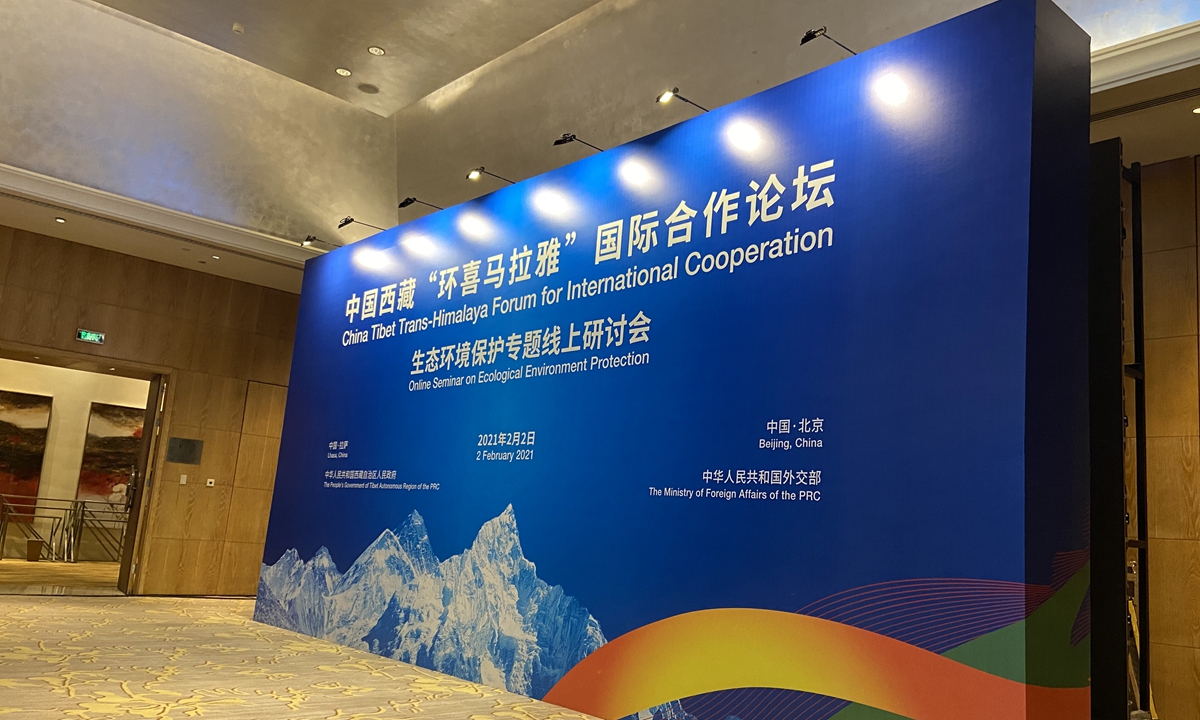Officials call for more climate change cooperation between China and the US at trans-Himalaya forum

Photo: Ministry of Natural Resources
Chinese and foreign officials and experts called for more international cooperation, especially between China and the US to address climate change at an international forum held in Beijing and Lhasa, and online with people joining from around the world on Tuesday night.
The China Tibet Trans-Himalaya Forum for International Cooperation was cohosted by China’s Foreign Ministry and Tibet’s regional government.
China’s Vice Foreign Minister Luo Zhaohui said at the opening ceremony of the forum that transnational cooperation is needed to address transnational problems. He noted that currently climate change is the most urgent non-traditional security challenge that facing humanity.
Luo noted that while this year marks the 30th anniversary of the end of the Cold War, non-traditional security challenges have become more frequent. From the Asian financial crisis in 1997 and the September 11 attacks in 2001, to the international financial crisis in 2008 and the COVID-19 pandemic that is still raging the world, all show that the non-traditional security challenges pose great threats to the survival, security and development of humanity. They also show that addressing those non-translational security challenges needs transnational cooperation and no country can detach itself from it.
“We are happy to see that the US government announced its return to the Paris Agreement,” Luo said.
Xie Zhenhua, special adviser for Climate Change Affairs of China’s Ministry of Ecology and Environment, said at Tuesday’s forum that the trans-Himalaya region is one of the most vulnerable regions to climate change.
The region provides resources, environmental and ecological protection to nearly 2 billion people. The impact of the global climate change can be felt strongly in the region, Xie said.
According to Xie, current emission trends could cause the average temperature to rise by 5 C at the end of this century and two thirds of the region’s glaciers will melt away. Even if the world’s average temperature rise is no more than 1.5 degrees Celsius, the temperature in the trans-Himalaya region could rise by 1.8 degrees and a third of region’s glaciers would melt.
“We need to uphold multilateralism and global cooperation to address the problem,” he said.
Xie said that China has shouldered its responsibility as a great power in the world in addressing climate change. China has also helped other developing countries to address climate change including offering training classes and donating goods.
He called for the US to play its role in the multilateral process and international cooperation on climate change. “We are willing to continue policy dialogue and practical cooperation with other parties including the US in the climate change field,” Xie said.
Hal Harvey, Founder and CEO of Energy Innovation, said on Tuesday that “We win together or we lose together. America needs China’s leadership if we are to avoid terrible climate change. China needs America’s leadership if we are to avoid terrible climate change.”
“And everything I learn from China’s top leaders and America’s top leaders is they want to pursue cooperation with intensity,” Harvey said.
At Tuesday’s forum, Wu Yingjie, Communist Party of China (CPC) chief of Tibet Autonomous Region, also introduced the achievements Tibet has made in protecting the environment. Tibet is now one of the regions with the best ecological protection in the world, he said.
Diplomats and experts from other countries including Pakistan, India and Canada also shared their views on climate change and transnational cooperation between countries in these regions.
This is the third Trans-Himalaya cooperation forum hosted by the Tibet regional government. Since 2018, Tibet regional government has hosted two such forums in Nyingchi, Tibet, aiming to facilitate regional connectivity, communications and cooperation which yielded fruitful results.

Photo: Xie Wenting/GT
